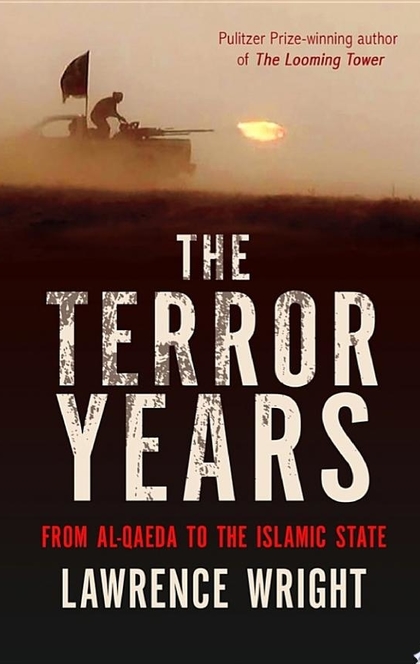
Recommended Books Part 1
3
likes
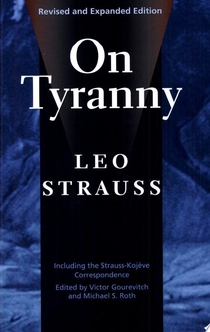
On Tyranny
On Tyranny is Leo Strauss's classic reading of Xenophon's dialogue, Hiero or Tyrannicus, in which the tyrant Hiero and the poet Simonides discuss the advantages and disadvantages of exercising tyranny. This edition includes a translation of the dialogue, a critique of the commentary by the French philosopher Alexandre Kojève, Strauss's restatement of his position in light of Kojève's comments, and finally, the complete Strauss-Kojève correspondence. "Through [Strauss's] interpretation Xenophon appears to us as no longer the somewhat dull and flat author we know, but as a brilliant and subtle writer, an original and profound thinker. What is more, in interpreting this forgotten dialogue, Strauss lays bare great moral and political problems that are still ours." —Alexandre Kojève, Critique "On Tyranny is a complex and stimulating book with its 'parallel dialogue' made all the more striking since both participants take such unusual, highly provocative positions, and so force readers to face substantial problems in what are often wholly unfamiliar, even shocking ways." —Robert Pippin, History and Theory "Every political scientist who tries to disentangle himself from the contemporary confusion over the problems of tyranny will be much indebted to this study and inevitably use it as a starting point."—Eric Voegelin, The Review of Politics Leo Strauss (1899-1973) was the Robert Maynard Hutchins Distinguished Service Professor of Political Science at the University of Chicago.
See all
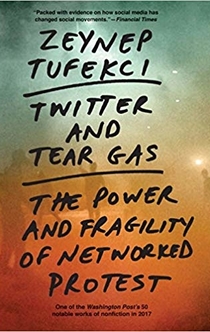
Twitter and Tear Gas
A firsthand account and incisive analysis of modern protest, revealing internet-fueled social movements’ greatest strengths and frequent challenges To understand a thwarted Turkish coup, an anti–Wall Street encampment, and a packed Tahrir Square, we must first comprehend the power and the weaknesses of using new technologies to mobilize large numbers of people. An incisive observer, writer, and participant in today’s social movements, Zeynep Tufekci explains in this accessible and compelling book the nuanced trajectories of modern protests—how they form, how they operate differently from past protests, and why they have difficulty persisting in their long-term quests for change. Tufekci speaks from direct experience, combining on-the-ground interviews with insightful analysis. She describes how the internet helped the Zapatista uprisings in Mexico, the necessity of remote Twitter users to organize medical supplies during Arab Spring, the refusal to use bullhorns in the Occupy Movement that started in New York, and the empowering effect of tear gas in Istanbul’s Gezi Park. These details from life inside social movements complete a moving investigation of authority, technology, and culture—and offer essential insights into the future of governance.
See all
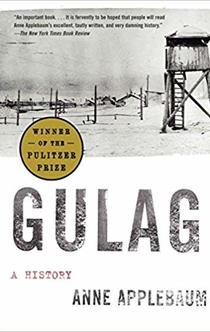
Gulag
This landmark book uncovers for the first time in detail one of the greatest horrors of the twentieth century: the vast system of Soviet camps that were responsible for the deaths of countless millions.Gulag is the only major history in any language to draw together the mass of memoirs and writings on the Soviet camps that have been published in Russia and the West. Using these, as well as her own original research in NKVD archives and interviews with survivors, Anne Applebaum has written a fully documented history of the camp system: from its origins under the tsars, to its colossal expansion under Stalin's reign of terror, its zenith in the late 1940s and eventual collapse in the era of glasnost. It is a gigantic feat of investigation, synthesis and moral reckoning.
See all

The Terror Years
Ten powerful pieces first published in The New Yorker recall the path terror in the Middle East has taken from the rise of al-Qaeda in the 1990s to the recent beheadings of reporters and aid workers by ISIS. With the Pulitzer Prize-winning The Looming Tower, Lawrence Wright became generally acknowledged as one of our major journalists writing on terrorism in the Middle East. This collection draws on several articles he wrote while researching that book as well as many that he's written since, following where and how al-Qaeda and its core cult-like beliefs have morphed and spread. They include an indelible impression of Saudi Arabia, a kingdom of silence under the control of the religious police; the Syrian film industry, then compliant at the edges but already exuding a feeling of the barely masked fury that erupted into civil war; the 2006-11 Israeli-Palestinian conflict in Gaza, a study in disparate values of human lives. Others continue to look into al-Qaeda as it forms a master plan for its future, experiences a rebellion from within the organization, and spins off a growing web of terror in the world. The American response is covered in profiles of two FBI agents and a chief of the CIA. It ends with the recent devastating piece about the capture and beheading by ISIS of four American journalists and aid workers, and how the US government failed to handle the situation.
See all
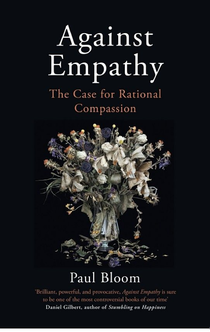
Against Empathy
In a divided world, empathy is not the solution, it is the problem. We think of empathy – the ability to feel the suffering of others for ourselves – as the ultimate source of all good behaviour. But while it inspires care and protection in personal relationships, it has the opposite effect in the wider world. As the latest research in psychology and neuroscience shows, we feel empathy most for those we find attractive and who seem similar to us and not at all for those who are different, distant or anonymous. Empathy therefore biases us in favour of individuals we know while numbing us to the plight of thousands. Guiding us expertly through the experiments, case studies and arguments on all sides, Paul Bloom ultimately shows that some of our worst decisions – in charity, child-raising, criminal justice, climate change and war – are motivated by this wolf in sheep's clothing. Brilliantly argued, urgent and humane, Against Empathy overturns widely held assumptions to reveal one of the most profound yet overlooked sources of human conflict.
See all

The Beginning of Infinity
The New York Times bestseller: A provocative, imaginative exploration of the nature and progress of knowledge“Dazzling.” – Steven Pinker, The GuardianIn this groundbreaking book, award-winning physicist David Deutsch argues that explanations have a fundamental place in the universe—and that improving them is the basic regulating principle of all successful human endeavor. Taking us on a journey through every fundamental field of science, as well as the history of civilization, art, moral values, and the theory of political institutions, Deutsch tracks how we form new explanations and drop bad ones, explaining the conditions under which progress—which he argues is potentially boundless—can and cannot happen. Hugely ambitious and highly original, The Beginning of Infinity explores and establishes deep connections between the laws of nature, the human condition, knowledge, and the possibility for progress.
See all

The Conservative Soul
Today's conservatives support the idea of limited government, but they have increased government's size and power to new heights. They believe in balanced budgets, but they have boosted government spending, debt, and pork to record levels. They believe in national security but launched a reckless, ideological occupation in Iraq that has made us tangibly less safe. They have substituted religion for politics and damaged both. In The Conservative Soul, one of the nation's leading political commentators makes an impassioned call to rescue conservatism from the excesses of the Republican far right, which has tried to make the GOP the first fundamentally religious party in American history. In this bold and powerful book, Andrew Sullivan makes a provocative, prescient, and heartfelt case for a revived conservatism at peace with the modern world, and dedicated to restraining government and empowering individuals to live rich and fulfilling lives.
See all

Astrophysics for People in a Hurry
Over a year on the New York Times bestseller list and more than a million copies sold. The essential universe, from our most celebrated and beloved astrophysicist. What is the nature of space and time? How do we fit within the universe? How does the universe fit within us? There’s no better guide through these mind-expanding questions than acclaimed astrophysicist and best-selling author Neil deGrasse Tyson. But today, few of us have time to contemplate the cosmos. So Tyson brings the universe down to Earth succinctly and clearly, with sparkling wit, in tasty chapters consumable anytime and anywhere in your busy day. While you wait for your morning coffee to brew, for the bus, the train, or a plane to arrive, Astrophysics for People in a Hurry will reveal just what you need to be fluent and ready for the next cosmic headlines: from the Big Bang to black holes, from quarks to quantum mechanics, and from the search for planets to the search for life in the universe.
See all

Mindfulness: A Practical Guide to Awakening
The mind contains the seeds of its own awakening—seeds that we can cultivate to bring forth the fruits of a life lived consciously. With Mindfulness, Joseph Goldstein shares the wisdom of his four decades of teaching and practice in a book that will serve as a lifelong companion for anyone committed to mindful living and the realization of inner freedom.Goldstein's source teaching is the Satipatthana Sutta, the Buddha's legendary discourse on the four foundations of mindfulness that became the basis for the many types of Vipassana (or insight meditation) found today. Exquisite in detail yet wholly accessible and relevant for the modern student, Mindfulness takes us through a profound study of:Ardency, clear knowing, mindfulness, and concentration—how to develop these four qualities of mind essential for walking the path wiselyThe Satipatthana refrain—how deeply contemplating the four foundations of mindfulness opens us to bare knowing and continuity of mindfulnessMindfulness of the body, including the breath, postures, activities, and physical characteristicsMindfulness of feelings—how the experience of our sense perceptions influences our inner and outer worldsMindfulness of mind—learning to recognize skillful and unskillful states of mind and thoughtMindfulness of dhammas (or categories of experience), including the Five Hindrances, the Six Sense Spheres, the Seven Factors of Awakening, and much more"There is a wealth of meaning and nuance in the experience of mindfulness that can enrich our lives in unimagined ways," writes Goldstein. In Mindfulness you have the tools to mine these riches for yourself.
See all







